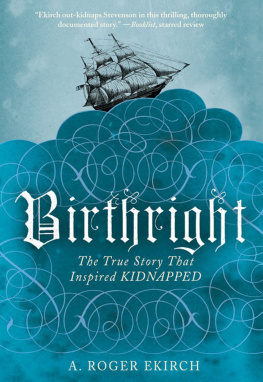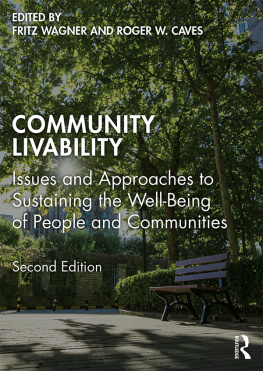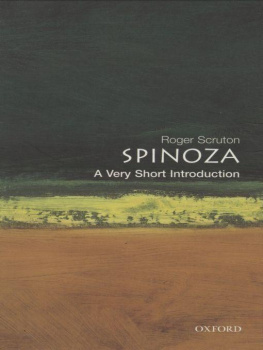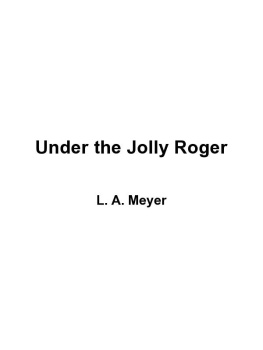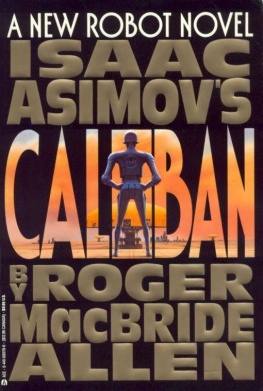Roger Ekirch - Bound for America_ The Transportation of B
Here you can read online Roger Ekirch - Bound for America_ The Transportation of B full text of the book (entire story) in english for free. Download pdf and epub, get meaning, cover and reviews about this ebook. year: 0, genre: History. Description of the work, (preface) as well as reviews are available. Best literature library LitArk.com created for fans of good reading and offers a wide selection of genres:
Romance novel
Science fiction
Adventure
Detective
Science
History
Home and family
Prose
Art
Politics
Computer
Non-fiction
Religion
Business
Children
Humor
Choose a favorite category and find really read worthwhile books. Enjoy immersion in the world of imagination, feel the emotions of the characters or learn something new for yourself, make an fascinating discovery.

- Book:Bound for America_ The Transportation of B
- Author:
- Genre:
- Year:0
- Rating:4 / 5
- Favourites:Add to favourites
- Your mark:
- 80
- 1
- 2
- 3
- 4
- 5
Bound for America_ The Transportation of B: summary, description and annotation
We offer to read an annotation, description, summary or preface (depends on what the author of the book "Bound for America_ The Transportation of B" wrote himself). If you haven't found the necessary information about the book — write in the comments, we will try to find it.
Bound for America_ The Transportation of B — read online for free the complete book (whole text) full work
Below is the text of the book, divided by pages. System saving the place of the last page read, allows you to conveniently read the book "Bound for America_ The Transportation of B" online for free, without having to search again every time where you left off. Put a bookmark, and you can go to the page where you finished reading at any time.
Font size:
Interval:
Bookmark:
Bound for America: The Transportation of British Convicts to the Colonies, 1718-1775
A. Roger Ekirch

During the 18th century, transportation to the colonies became Britain's foremost criminal punishment. From 1718 to 1775, British courts banished fifty thousand convicts. They formed the largest body of emigrants after African slaves ever compelled to go to America. A comprehensive account of the transportation in the years preceding the settling of Australia, this book combines analysis with a vivid narrative to provide new insights into the origins of crime and the treatment of offenders on both sides of the Atlantic.
Published in the United States
by Oxford University Press Inc., New York
A. Roger Ekirch 1987
Introduction
Prologue
Part One: Justice
1 Banishing Vice
2 Native Sons
3 The Rough Trade
Part Two: Penance
4 Rites of Passage
5 Exiles in the Promised Land
6 Trouble in the Chesapeake?
7 Coming Home
8 Epilogue
Preface
I became drawn to transportation, as the penalty of banishment was euphemistically called, while scanning the pages of that venerable early American newspaper, the Pennsylvania Gazette. Although never finding the information that I was hunting for, I did stumble upon Benjamin Franklin's celebrated polemic instructing Americans to send Mother England rattlesnakes in return for convicted felons. His bitterly sarcastic indictment propelled me to dig further, and I shortly discovered that transportation had much to say about eighteenth-century crime and society, on both sides of the Atlantic Ocean.
In the course of my research, I came to rely upon the resources of many institutions. I am grateful to the Public Record Office (at both Chancery Lane and Kew); the Scottish Record Office; the British Library; the Guildhall Records Office in London; the Bodleian Library of Oxford University; the record offices of Coventry, Cumbria, Derbyshire, Devon, Gloucestershire, and Leicestershire; the Brecknock Museum; and, most of all, the Cambridge University Library. I owe a particular debt to Christine J. Fenn and Janice MacDonald of the UL's Rare Books Department for assisting my work. In the United States, I wish to thank the Maryland Hall of Records; the Maryland Historical Society; the Library of Congress; Alderman Library of the University of Virginia; the Virginia State Library; the Colonial Williamsburg Research Center; the William L. Clements Library of the University of Michigan; and the Massachusetts Historical Society. Special thanks are expressed to Dorothy F. McCombs, Sharon D. Alls, and their fellow-librarians at Newman Library at Virginia Polytechnic Institute and State University.
Support for this study came from several sources, to whom I am very grateful: Virginia Tech, the National Endowment for the Humanities, and the American Philosophical Society. My largest debts are to Paul Mellon, the Managers of the Mellon Research Fund, and the Faculty of History at Cambridge University. This book was in its infancy when I received a year-long appointment at Cambridge as Paul Mellon Research Fellow in American History. (p.viii) This good fortune aided my research immeasurably, not just because of the university's proximity to sources in London but also because of the assistance I received from local historians. My partners in crime, Joanna Innes and Peter King, were always willing to lend a hand or read an early draft, as were several specialists in American history: Roy Clayton, John A. Thompson, Betty C. Wood, William R. Brock, and Mark D. Kaplanoff. David and Margaret Reynolds helped me in innumerable ways. In addition, I became a Fellow Commoner of Peterhouse. For the many kindnesses I received there, I am deeply grateful to the Master, Lord Dacre (Hugh Trevor-Roper), and the Fellows of the College. Edward Norman, Paul Hopkins, Harold James, and Martin Golding were ever generous in their friendship. I should also like to thank Michael and Beatrice Hurst, whose unstinting good cheer made my visits to Oxford especially pleasant.
A number of people gave me their advice after reading either parts or all of earlier versions of the manuscript. Philip D. Morgan and Robert J. Brugger contributed their time and criticism on frequent occasions. Besides sharing his insights and research, John Beattie was an enormous source of encouragement. He has my fond appreciation. I also benefited from the comments of James Bacon, Paul G. E. Clemens, James S. Cockburn, Stephen J. Davies, Kenneth Morgan, Paul F. Paskoff, Marcus Rediker, Michael Ryder, and Shane White. Jack Greene, as ever, provided warm support, and John Russell-Wood furnished some delightfully droll counsel. For showing me portions of their unpublished research, I am indebted to Mollie Gillen, Farley Grubb, Peter C. Hoffer, John H. Langbein, Peter Linebaugh, Magalys Perez, Gary P. Secor, and Lida Stout. John Treadway kindly provided me with copies of some materials I missed at the Public Record Office.
Colleagues at Virginia Tech offered assistance at various times: Linda Arnold, Frederic J. Baumgartner, Richard F. Hirsh, Charles M. Reed, George Green Shackelford, Crandall A. Shifflett, and Joseph L. Wieczynski. I am grateful to Lisa Donis, Patty S. Mills, and Debbie Rhea for their accomplished typing. The Graphic Arts staff and, most particularly, Cathy Gorman were responsible for the figures and maps. For permission to draw upon portions of the book that earlier appeared in their journals, I thank the editors of the American Historical Review , the Journal of British Studies , and the William and Mary Quarterly . Ivon Asquith, Robert Faber, (p.ix) and Dorothy McLean of the Oxford University Press have been splendid editors. I very much appreciate their efforts on my behalf.
My father has always been a wonderful source of inspiration, and my mother offered unfailing moral support. During research forays to Washington, DC, my sister and her husband, Caryl and George Williams, along with Morgan and Grayson, provided welcome hospitality. Most important, my final thanks are reserved for Alice, whose affection and good humour were invaluable. This book is dedicated to her, with love.
A.R.E.
Blacksburg, Virginia
August 1986
NB: All dates are rendered in new style, with the new year beginning on 1 January. Quotations are in the original spelling, except that abbreviations have been expanded and punctuation added where necessary. For the sake of convenience, the term Britain is normally meant to include the whole of Ireland as well as England and Scotland (i.e. the British Isles rather than just the United Kingdom), and England is normally meant to include Wales, as a reflection of the political realities of the time. Except where specially noted, references to monetary values in Britain are to British sterling and those to monetary values in America are to the common currency of the colony.
(p.x)
Maps and Figures
Map 1. Distribution of Convicts in English/Welsh Assize Circuits, 17691776
Map 2. London and Bristol Trade Zones, and Other Ports of Embarkation for English Convicts
Map 3. The Chesapeake, 1750
Fig. 1. Convicts Transported from London, Middlesex, Buckinghamshire, and the Home Counties, 17181772
Fig. 2. Arrival by Month of Convicts, Servants, and Slaves Imported into Maryland, 17461775
Illustrations
Between pages 110 and 111
A Picture on the Punishment of Titus Oates (1685)
Courtesy: Trustees of the British Museum
William Hogarth, Industry and Idleness , Plate 10 (1747)
Font size:
Interval:
Bookmark:
Similar books «Bound for America_ The Transportation of B»
Look at similar books to Bound for America_ The Transportation of B. We have selected literature similar in name and meaning in the hope of providing readers with more options to find new, interesting, not yet read works.
Discussion, reviews of the book Bound for America_ The Transportation of B and just readers' own opinions. Leave your comments, write what you think about the work, its meaning or the main characters. Specify what exactly you liked and what you didn't like, and why you think so.



